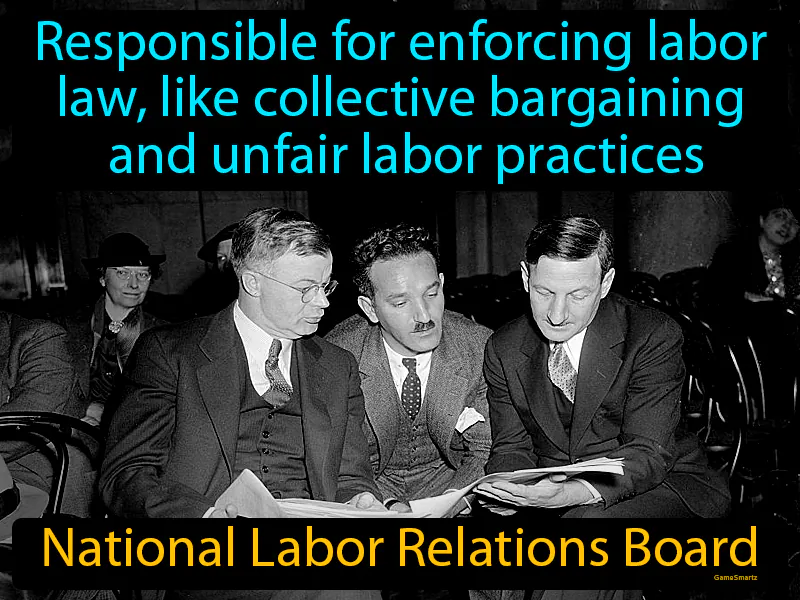National Labor Relations Board
National Labor Relations Board: Easy to understand
The National Labor Relations Board (NLRB) was created in 1935 as part of President Franklin D. Roosevelt's New Deal to address labor disputes and protect workers' rights to organize and engage in collective bargaining. During the Great Depression, many workers faced poor conditions, low wages, and unfair labor practices, so the NLRB was vital in ensuring fair treatment and giving workers a voice. This was a significant change that helped balance the power between employers and employees, contributing to improved working conditions and economic stability. Today, the NLRB still plays an important role by safeguarding workers' rights and resolving disputes, which is essential for maintaining fair workplaces. For example, if a group of employees at a local grocery store wants to form a union to negotiate better wages and benefits, the NLRB would help ensure this process is fair and legally protected.

Practice Version

National Labor Relations Board: Responsible for enforcing labor law, like collective bargaining and unfair labor practices. National Labor Relations Board. The National Labor Relations Board is a U.S. government agency that ensures workers can organize and bargain with employers.